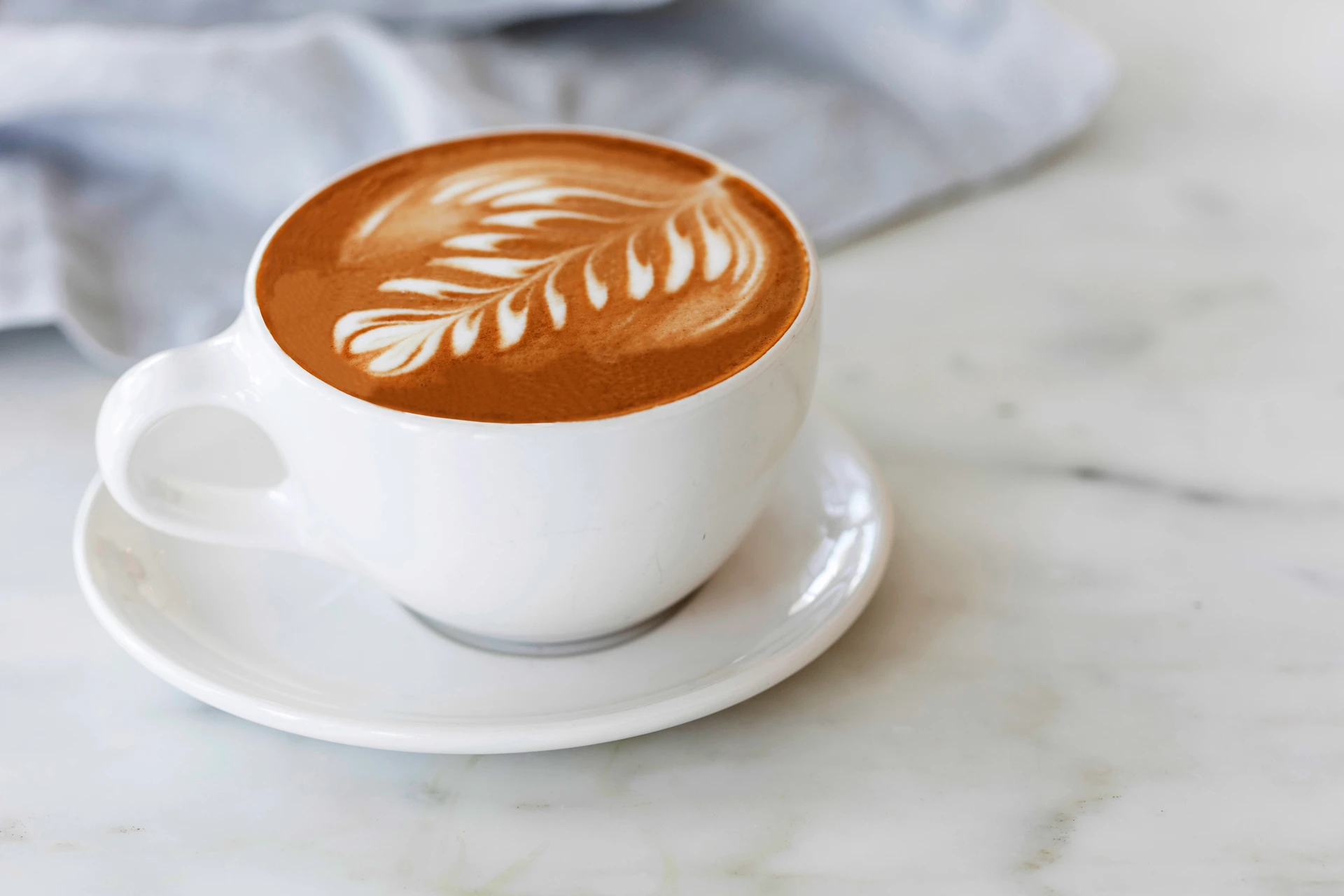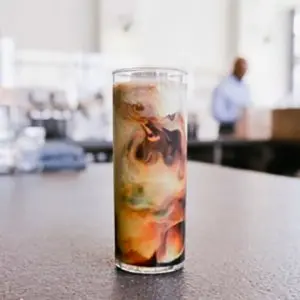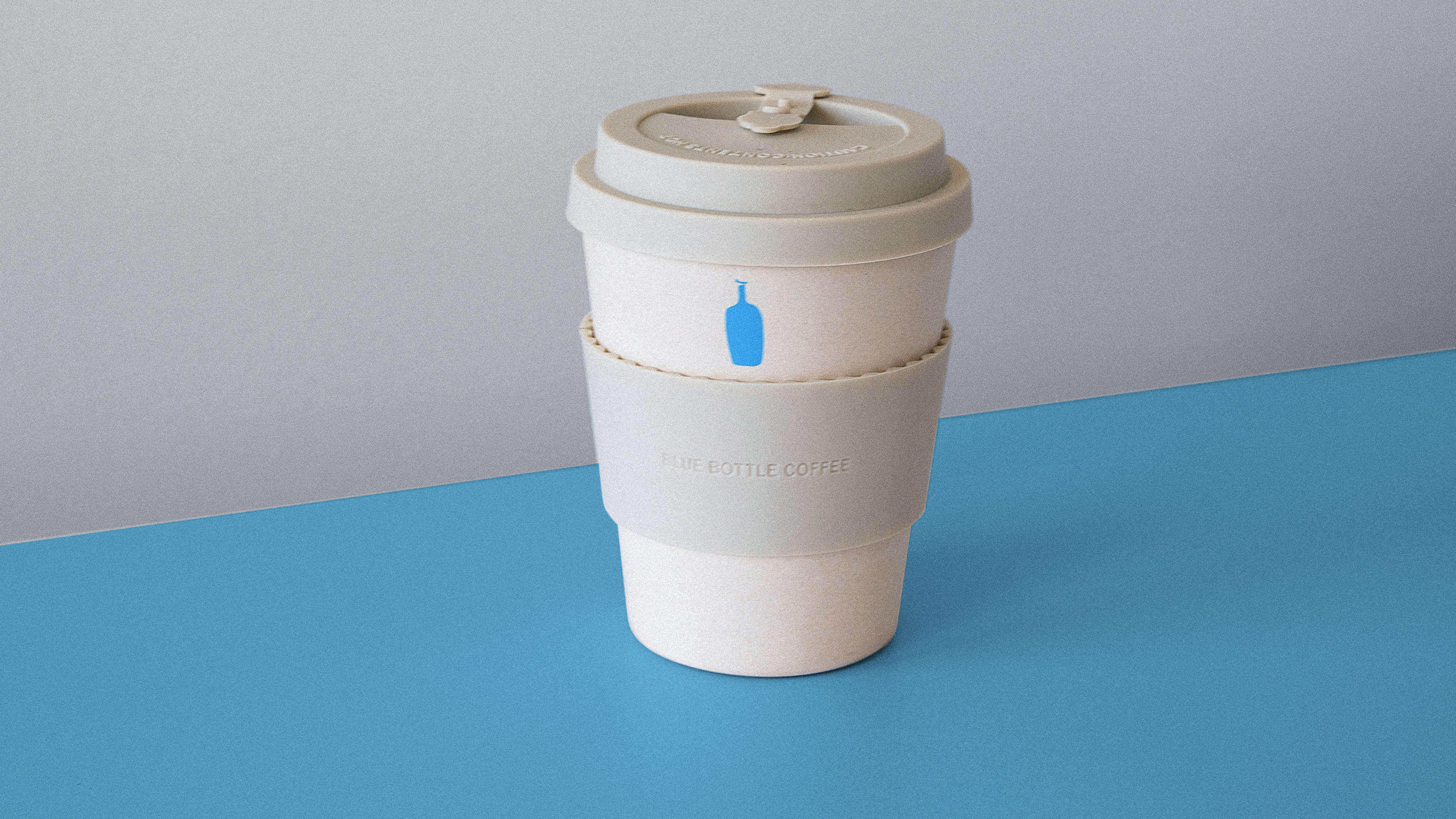Each year 250 billion fiber cups end up in landfills, which is why many companies are attempting to design disposable cups that can be composted or recycled anywhere in the world; in 2018, Starbucks and McDonald’s joined forces to develop a disposable cup.
Blue Bottle is not interested in waiting for the perfect disposable design. In a blog post earlier this week, CEO Bryan Meehan offered a firm mea culpa for his company’s role in the world’s disposable cup problem—and announced a radical beta test, at one Blue Bottle store in the Bay Area, of a “zero-single-use-cup program.” In other words, one Blue Bottle store will stop giving out disposable cups altogether.

At the beta location, you’ll have to bring your own mug or thermos, or you’ll need to put down a deposit on a multi-use loaner cup. A Blue Bottle spokesperson clarified to Co.Design that the design of this cup is still in the works, but that it will be designed to be taken to-go, and the deposit will likely be between $3 and $5. (This price point is ostensibly free if you return the cup, and in any case it is significantly lower than the $16 reusable cup that Blue Bottle sells today if you don’t.)
“We are proud to announce an experiment that may not work, that may cost us money, and that may make your life a little more complicated,” writes Meehan, who explained that the compostable bioplastic and then sugarcane cups the company had switched to still accounted for 12 million single-use cups a year, which is still a waste by any measure.

Of course, Starbucks has long offered a 10¢ discount on drinks if you bring your own vessel. And a new startup called Cup Club, which has piloted a reusable cup collection for coffee shops in the U.K., actually won one of our Innovation by Design awards this year. The difference between these initiatives and Blue Bottle’s plan is the bold move of not offering reusability as an option, but as the de facto standard. It’s the sort of practice that will force behavioral change with frequent customers. Forget your cup a few days in a row, and you will quickly rack up deposit fees. And maybe those fees will be enough to make you question your coffee habit to begin with.
In service design, where the smallest details of logistics and customer experience matter, asking much more of the consumer could truly hurt Blue Bottle’s bottom line. The store will also need to manage and sterilize many more reusable cups than it used to. Sure, Blue Bottle is mitigating risk by doing this test in one location as a pilot, but it is still asking its own consumers to consume less—to do things the harder way, with no incentive or reward other than the murky fate of the planet itself.
“A commitment to reuse will wreak havoc on every aspect of our pilot cafe’s operations,” Meehan writes, with, yes, more than a little bit of drama. “We expect to lose some business. We might fail. We know some of our guests won’t like it—and we’re prepared for that. But the time has come to step up and do difficult things. It’s our responsibility to the next generation to change our behavior. It’s all hands on deck.”
Recognize your brand’s excellence by applying to this year’s Brands That Matter Awards before the final deadline, June 7.
Sign up for Brands That Matter notifications here.
